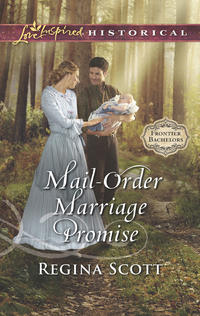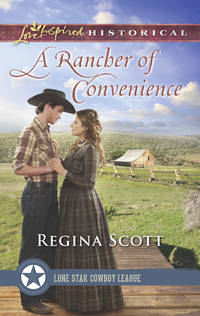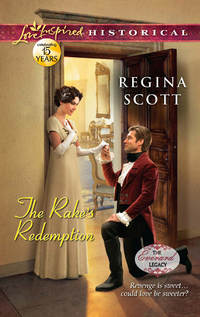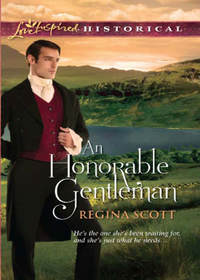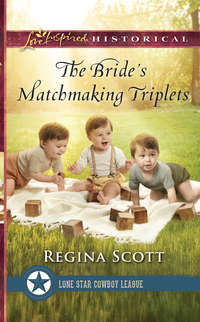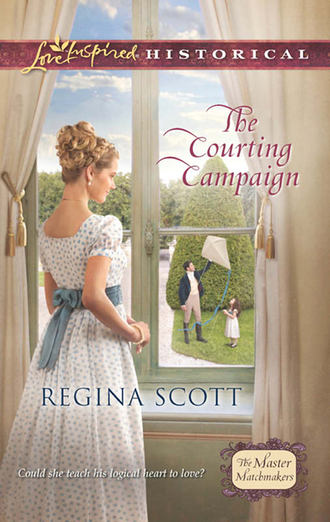
Полная версия
The Courting Campaign
Alice climbed up into her chair and waited for Emma to push her up to the table. “I didn’t mean to make so much noise,” she said, face scrunching. “I know I shouldn’t bother Auntie or Papa.”
All at once the ideas that had been germinating in Emma’s mind sprouted into bloom. Her smile grew.
“Not at all, Alice,” she said, pushing the girl up to the table and going to her own seat to wait for the dinner tray to arrive. “I believe your father needs something to wake him up. And I know just how we can go about it.”
* * *
The next morning, Nick scowled at the scrap of wool sitting on his worktable. Two days ago the stuff had burst into flame immediately; his laboratory still gave off the grit of charcoal from the smoke even though he’d spent Sunday afternoon airing the place and setting up his next experiment. Today, under a different chemical treatment, the material would not so much as smolder. That didn’t bode well for success.
It had sounded like a relatively simple problem to solve. Coal miners required light to do their jobs deep underground. Coal mines gave off firedamp, a noxious gas that appeared to be a form of the swamp gases Volta had studied. Combine a flame with a patch of the gas, and the resulting explosion could kill dozens. The Fatfield Mine in Durham had lost thirty-two men and boys just two years ago after their candles ignited firedamp.
Still, the solution eluded many. Dr. William Clanny had developed a method of using water to force the air into a lamp, protecting the flame from the gas. While ingenious, the device was impractical to carry into the mines. Sir Humphry Davy, the chemist, was approaching the matter from a heating perspective. An enginewright named George Stephenson thought burnt air was the key to separating the flame from the firedamp.
Nick had been working with a team of natural philosophers led by Samuel Fredericks to consider the properties of the materials that could compose a lamp. They had thought they’d come across a likely combination of candidates, but their first attempt to test the lamp had resulted in the deaths of three men and a boy a little older than Alice.
The muscles in his hand were tightening; he shook them out. Obviously this composition would not meet his needs. He required something that would burn in the presence of oxygen but not firedamp, not the other way around. He’d have to start over.
He rocked back on his stool, took a deep breath. He was certain the secret lay in the composition of the lamp’s wick. He’d already had a glassblower create the appropriate chimney to partially isolate the wick from the gas and the blacksmith create the brass housing for the fuel. He’d tried wool, cotton and linen and various combinations of fuel, to no avail. One attempt was too flammable. Another, like this, wasn’t flammable enough. There was no easy in between.
Which somehow reminded him of his life of late.
Outside, he heard a noise. More like a bump and shuffle, really. Very likely the gardener was attempting to replace the shrub Nick had withered when he’d dumped a batch of chemicals after he’d first moved to the Grange. He’d learned to be more cautious in his disposal habits. He didn’t want Alice to accidentally come in contact with the stuff.
Perhaps he ought to try silk next. Kressley had recently proposed its use in commercial lamps. But he wasn’t sure it was practical by itself. Perhaps coated with some chemical to moderate the flammability.
The noise outside was rising in volume now, and he thought he made out words. Was that someone singing? He could place neither the tune nor the key.
Nick shook his head to clear his mind. It didn’t matter what was happening outside. He had work to do. His family’s income came in large part from the leasings of the mine to the east of the Grange. He felt as if he owed it to those men personally to find a safer way for them to work.
He still remembered the first time his father had taken him to the mine, on a gloomy day when Nick was eight. Nick had been about to leave for Eton, and his father seemed to see Nick’s imminent departure as reason to spend time together. Certainly Nick could find no other logical hypothesis for why his father had suddenly remembered his existence.
They’d driven to the mine in the gig, his father at the reins, but obviously determined to show his knowledge of the place. He’d pointed out the shadowed entrances, the stiff metal outbuildings, the men and boys laboring under the weight and darkness. His father’s face had glowed with pride as he described the prosperity, the accomplishment.
Nick had been more interested in how the mine worked. He’d prevailed upon his father to allow him to be lowered in one of the baskets into the pit. He hadn’t been afraid, even as daylight disappeared and blackness swallowed him.
Open-flame lamps produced more light at the bottom, where scarred walls told of past discoveries. Sitting on the floor had been a boy of six, face grimy, clothes grimier. One small fist enclosed the handle of a wooden door built into the wall.
“What are you doing?” Nick asked as he stepped from the basket onto the uneven floor.
“Manning the wind-door,” the boy replied with pride. “We open and close the doors to keep the air flowing.” As if to prove it, he heaved on the handle, and air rushed past Nick, setting the basket beside him to swaying.
That grimy face was the one he saw when he thought about the need for his safety lamp.
Something hit the door of his laboratory, hard. The memory faded. Enough of that nonsense. Each day down in those mines, hundreds of men and boys risked their lives. While it was not entirely his fault a replacement had not been found, he could not forget that a mistake of his had cost lives as well as his status as a natural philosopher. He would not rest until...
“What on earth is all that noise?” he demanded, jumping off his stool. He strode to the door and jerked it open.
Alice gazed up at him, little fingers barely grasping a battledore. The wooden racket was nearly as long as she was. Her eyes seemed disproportionately large for her face, but one look at him and they brightened. “Papa!”
“Alice,” he returned, bemused.
“Good day, Sir Nicholas,” Miss Pyrmont called from a short distance away. She swung her battledore up onto the shoulder of her brown wool gown. He seemed to remember the game that required the rackets also involved a shuttlecock that was cork at one end and feathers at the other. Hardly sufficient to make noise. He struggled to develop a hypothesis about the source of the thuds against his door.
“Miss Pyrmont,” he greeted her. “Why are you here?”
She cocked her head as she strolled closer. She wore no bonnet. Perhaps they were not required for a nanny as they seemed to be for other ladies. Certainly Charlotte and Ann had never left the house without one. Either way, the sunlight blazed against her pale hair.
“We’re playing a game,” she explained with a smile as she approached him. “I would think that would be obvious to a gentleman given to observation.”
Alice was still gazing up at him as if equally surprised he hadn’t figured it out.
“I can see you are playing a game,” Nick replied. “What I don’t understand is why you must play it here.”
“Don’t you like games?” Alice asked.
That was not the issue, but he didn’t think her nanny cared. Indeed, the look in Miss Pyrmont’s muddy eyes as she stopped in front of him was nothing short of challenge.
“Games can be enjoyable,” he started, when Alice dropped her battledore and seized his nearest hand with both of hers.
“Oh, good!” she cried. “Come play!”
He took a stutter-step forward to keep from bowling her over. “No, Alice. Not now.”
He had meant the tone to be firm, but not sharp. His daughter obviously had a different interpretation. She stopped and dropped his hand, and her lower lip trembled. “I’m sorry. I thought you wanted to play with me.”
How was he to answer that? Alice could not understand what drove him. She was too little to remember her mother’s death much less the recent tragedies associated with his work. She couldn’t know the depth for which he needed to atone. Only God knew how much Nick had failed, another reason he found it hard to take his concerns to the Almighty.
Miss Pyrmont had reached their sides. She knelt, brown skirts puddling, and took Alice’s hands in hers. “I’m sure your papa would love to play with us, Alice. We simply caught him at a bad time.” She glanced up at him. “Isn’t that right, sir?”
Nick blew out a breath. “Yes, just so. Thank you, Miss Pyrmont.”
She gave him a quick smile before returning her gaze to Alice, whose face was still pinched.
“Your father has important work to do,” she explained. “We wouldn’t want to keep him from it.”
“Noooooo,” Alice said, the length of the vowel proclaiming her uncertainty.
“Thank you for understanding, Alice,” Nick said. “I’ll be done soon, and then I’ll have more time for games.”
Alice brightened again. How quickly she believed him and with no evidence. A shame his colleagues didn’t have such faith in him. A shame he’d lost such faith.
Miss Pyrmont rose, all smiles, as well. In fact, he noted a distinct change in her appearance when she smiled, as if she somehow grew lighter, taller. The change seemed to lighten his mood, as well. Curious.
“I’m so glad to hear you’re making such progress, Sir Nicholas,” she proclaimed. “Do you think you will be done today, then?”
He could not be so encouraging. In fact, her brightness suddenly felt demanding, asking things of him he knew he could not achieve. Nick took a step back. “Not today, no.”
“Tomorrow then?” she persisted, following him.
“I cannot be certain,” Nick hedged, glancing over his shoulder for the safety of his laboratory.
“The next day, then,” she said with an assurance he was far from feeling. “We should celebrate over tea.”
“You’ll like tea, Papa,” Alice said as if he would be experiencing the brew for the first time. “The bubbles make kisses.”
Kisses? Though he knew for a fact that tea and kisses did not equate, he found his gaze drawn to the pleasing pink of Miss Pyrmont’s lips. As if she’d noticed his look, she took a step back, too.
“What time should Alice and I be ready for you to join us?” she asked.
She seemed to assume his agreement this time. Assumptions were dangerous things, to be used only when no source of direct observation or calculation was available. He did not think it warranted in this instance. Surely Miss Pyrmont had observed that he was too busy for a social convention like tea.
“I fear I cannot give you a precise day when I will be finished,” he told her. “Now, if you’ll excuse me, I should get back to my work. I suggest you find somewhere else to play.”
Alice seemed to crumple in on herself, and he felt as if a weight had been placed on his shoulders. He wished once more he knew how to make her understand. Perhaps she would appreciate his work one day, when she was older. He could imagine having her sit beside him as he explained his process, his hypotheses. She could help him think through his logic, question things he’d perhaps taken for granted. It seemed he needed someone like that in his life, or he would never have overlooked the mistakes in his calculations, much less his wife’s illness.
But as he turned to go, he caught sight of Miss Pyrmont’s face. Her chin was thrust out, her eyes narrowed, as if she could not understand him. She was certainly mature enough to realize the importance of his work, might even have been of some use to him in furthering it. But if possible she looked even more disappointed than Alice.
With him.
Chapter Five
“He wouldn’t even take tea with her,” Emma lamented to Mrs. Jennings a short while later. “You’ve seen Alice’s face when she wants something. How can anyone refuse?”
Mrs. Jennings tsked in sympathy. She and Emma had snatched a few moments’ reprieve in the servants’ hall behind the kitchen. Under Ivy’s watchful eye, Alice was taking her afternoon nap upstairs, though the little girl generally protested.
Now Mrs. Jennings sat on a high-backed chair at the table that ran down the center of the hall, flanked by benches. Ivy had confided it was the only place Mrs. Dunworthy hadn’t supplanted the cook when Sir Nicholas’s sister-in-law had come to manage things. Seeing Mrs. Jennings sitting in the chair, one competent hand thumbing through her recipe book by the light from the fire and the floor-to-ceiling windows overlooking the peaks, Emma thought the cook still looked like the queen of this castle.
“You say no to Miss Alice when it’s not in her best interests,” Mrs. Jennings pointed out, eyeing a recipe with a frown as if doubting it was good enough for her master.
Emma began casting the next row of stitches on the sock she was knitting for Alice. “How could spending time with her father not be in Alice’s best interests?”
Mrs. Jennings flipped the page in her recipe book. “Poor man. Sometimes I think she reminds him too much of Lady Rotherford, God rest her soul.”
Sir Nicholas being a knight, there could be only one person the cook referred to: his late wife. Emma sobered. “I never thought of that. I was told she died when Alice was a baby.”
“Three years ago now, it was,” Mrs. Jennings confirmed, gaze going out the window as if she saw that day again. “She was such a pretty little thing, like Alice, though more fragile, mind you.”
Sometimes she thought Alice was fragile enough! The sock Emma was knitting for her would almost have fit Lady Chamomile’s porcelain feet.
“How did Lady Rotherford die?” Emma asked.
“Consumption.” The cook shivered as if the memory chilled her and refocused on her recipe book. “Started with an occasional cough. None of us paid it any mind. But then Millie noticed blood on her ladyship’s handkerchief when doing the laundry, and it seemed her ladyship just got weaker and weaker until there was nothing left of her.”
Now Emma felt the chill and wished the wool she was using had already been fashioned into a shawl. “Thank the Lord, Alice was spared.”
Mrs. Jennings nodded, tagging down a corner of one page in her book. “We were all thankful. But Sir Nicholas, oh, it broke his heart. They had been promised since they were children, you see. Everyone said it was a love match.”
A love match. Emma nearly sighed aloud at the thought of it. The books she’d borrowed from her foster sisters were full of stories about love denied and ultimately triumphant. She wanted to believe men and women could come together out of love, that someday she’d meet a man willing to overlook her lack of family and fortune and appreciate her for herself. That sort of love seemed entirely too rare.
But if Alice Rotherford had been conceived in love, how could Sir Nicholas thrust her away now? If Emma had had a smidgeon of such love, she would have treasured it.
“And Alice?” she asked. “Did he have the same degree of affection for her?”
Mrs. Jennings shut her recipe book before answering. “You have to understand,” she murmured, gaze on Emma’s. “Lady Rotherford was never strong. Birthing Alice took a great deal out of her. I think that’s why the consumption carried her off so quickly. I don’t believe Sir Nicholas blamed Alice, mind you. He simply had his hands too full with her ladyship to pay the child much mind.”
Emma hooked her needles into the sock to keep it from unraveling and gathered up her things. “You said her ladyship has been dead for three years. From what I can see, it’s his work that’s keeping him busy, not family concerns.”
“You mustn’t be so hard on him, miss,” Mrs. Jennings protested. “I know he cares for Alice. He’s always made sure she had someone to look out for her, proper food and sustenance.”
“Food and sustenance aren’t the same as love,” Emma replied, rising.
Mrs. Jennings chuckled as she too rose to return to her work. “Oh, I wouldn’t be so sure. More than one of the Rotherfords have found their way to my kitchen over the years when they wanted something to comfort them.”
Emma smiled at her. “I suspect it was your presence rather than the food that brought them comfort, Mrs. Jennings.”
The cook returned her smile as they headed for the kitchen together. “Thank you for that, my dear. I try to make my kitchen a place of welcome, as the good Lord intended. But I know that food can bring comfort as well, something warm, perhaps, to take the chill from life, something a little sweet to cover up the bitter.”
On her way to the servants’ stair, Emma paused to eye the cook. “Was Sir Nicholas ever one of the Rotherfords who came seeking comfort?”
Mrs. Jennings face saddened. “All too often, the poor mite. It wasn’t easy growing up alone in this house.”
“Then I think we have an opportunity before us,” Emma said, mind clicking through options.
Mrs. Jennings cocked her head. “What are you thinking?”
Emma grinned. “I propose we conduct an experiment, Mrs. Jennings. I’ve heard it said that the shortest way to a man’s heart is down his throat. Let’s test that theory.”
* * *
Nick noticed that something had changed the moment he bit into dinner that night. The difference did not appear to be in the eating arrangements. The table had always seemed too long to him, a waste of space. He and Charlotte took up less than one tenth of the length, by his rough estimation. He should probably have simply requested a tray in his study each night, but he somehow thought Charlotte deserved not to eat alone. And after a fruitless day like today, even Charlotte’s judgmental company was to be preferred to the silence of failure.
So if it was not the arrangements or the company that differed, it must be the food. Another bite of the new potatoes confirmed it.
“Is Mrs. Jennings well?” he asked Charlotte, trying not to grimace. Charlotte never responded well to anything she considered criticism of her household.
“I’ve heard no complaints from below stairs,” Charlotte said, lifting a small portion of the trout. “Why do you ask?”
He sniffed the next forkful before tasting it. Yes, something was definitely missing—parsley perhaps? Either way, the food was not to his liking. He pushed back his plate. “It all seems rather bland tonight.”
“I taste nothing unusual,” Charlotte countered, with the supreme confidence of one who knows about such things.
“Perhaps it’s the company then,” Nick said, and immediately regretted it as she stiffened. “Forgive me, Charlotte. I meant no disrespect. I was simply thinking that dinner was more interesting when Alice was here.”
Charlotte’s body settled into her seat. “She is a dear. Perhaps I can advise Miss Pyrmont to have her ready on Mondays, Wednesdays and Fridays.”
Odd logic. “Why only those days?” Nick queried.
Charlotte smiled at him. “I think she is a bit young to join us for dinner every night.”
Was she? He hadn’t been invited to the adult table until he’d returned from Eton at fourteen, but he thought that was his mother and father’s decision, not a general rule of Society. He’d visited the homes of friends where the children of the family were allowed at table as young as six.
“We had no difficulty with Alice last night,” he reasoned. “If she causes trouble in future, we can reconsider the matter. Until such time, I see no reason why she can’t eat with us.”
“How very kind of you.” Charlotte’s praise held an edge, as if she gave it begrudgingly. He felt as if his chair was growing harder. He purposely reached for his glass and took a deep draught.
He could not understand Charlotte. Why was she so annoyed by his request to include Alice? He had never been opposed to the idea. Alice had simply been too young until recently to make the matter practical.
Knowing he needed sustenance for the next few hours, he pulled his plate closer and decided to attempt the trout.
“I suppose you’ll need to do something about Miss Pyrmont’s wardrobe,” he said, remembering the conversation from the previous day. “I’ve never paid much attention to the staff’s attire, but if that brown dress is the best we can do I obviously need to increase your household budget.”
He had taken another sip from his glass and set it back down before he noticed that something else was missing. This time it was the sound of Charlotte’s voice. Indeed, he wasn’t even sure she was breathing. Glancing her way, he saw that she had drawn herself up and was regarding him fixedly. Odd. He hadn’t been aware of a change in his anatomy or clothing.
“Why, precisely,” she said, “do you wish to improve Miss Pyrmont’s wardrobe?”
He hadn’t realized that the hearth was deficient either, yet he was certain the temperature in the dining room had plummeted by at least twenty degrees. “You said she was mortified to take dinner with us last night because of her attire. If we intend to have her to dinner every night with Alice, her mortification must multiply by seven, by my estimation. Surely that is unacceptable.”
“I see.” She lay down her fork with such care Nick could only wonder whether she’d considered another use for it, and one that would result in his injury. “So what you really want is to have dinner with your daughter’s nanny.”
Nick kept his own fork in his hand with a distinct feeling of self-protection. “I am not opposed to dining with Miss Pyrmont. She makes intelligent, some might even say witty, conversation. She is pleasant to look upon. However, my thought was that Alice would need someone to attend her.”
Charlotte’s chin seemed to have shortened. Tightening of the muscles, perhaps? “Then you find me incompetent to assist your daughter in social settings,” she said.
He never had understood why his words were so easily misconstrued. He thought he had a rather good grasp of the English language. Certainly his tutors had never complained. But when it came to Charlotte and even Ann, what he meant never seemed to be what they heard.
“My opinion of your competence should be evident by the fact that I leave all matters in this household to your attention,” he told Charlotte. “As I already trespass on your generous nature by having you manage the staff, I thought perhaps you’d prefer to eat your dinner in peace and allow someone who is paid to see to Alice’s needs assist her through dinner until she is experienced enough to do so herself.”
He must have succeeded in communicating at last, for she dropped her gaze. “I see. Forgive me, Nicholas. I know I am not here because of my generous nature but yours. If you wish Miss Pyrmont to join us for dinner in the future, I will make the arrangements. It may take a day or two to work out the menus with Mrs. Jennings.”
Nick wasn’t sure why menus would be so complicated, but he thanked his sister-in-law for the effort. A glance at the trout and the new potatoes beside it confirmed he had no interest in either. Conversation held as little appeal. He rose, and Charlotte glanced up, eyes widening.
As she appeared to require him to state the obvious, he did. “I’m finished with dinner this evening. If you will excuse me, I have work to do.”
Charlotte nodded, but he hadn’t really expected otherwise. Theirs had never been a congenial relationship, and Ann’s death had only made matters worse. At least in his work he had some hope of untangling difficulties, unlike Charlotte’s unpredictable responses.
Yet his work continued to thwart him that night. He sat in his study, reviewing his calculations, considering alternative theories that had been proposed by his peers the last few months. Why couldn’t he find the solution? Certainly there had to be at least one, and he had considered the possibility that there was more. Was he truly as deficient as his colleagues in the Royal Society had intimated when they’d cast him from their number?
He pushed such thoughts aside. He had evidence that he had some pretentions toward knowledge—scores at Eton and Oxford, his work on the properties of common materials for industrial use that had earned him his knighthood. Until Ann’s death, there had been no hint that his faculties could fail him. He wanted to think of that as the aberration rather than the rule.



